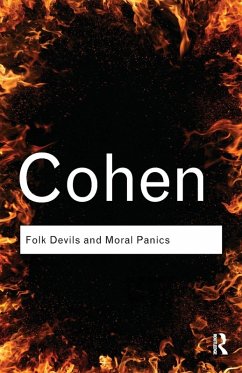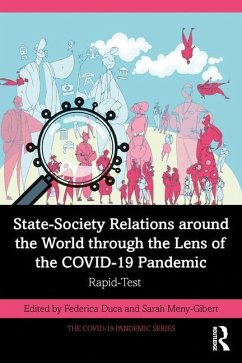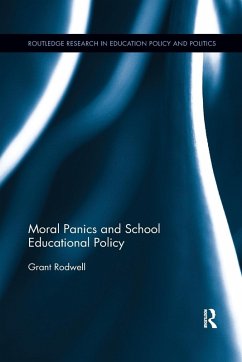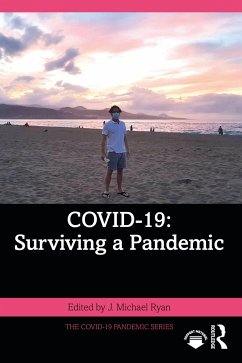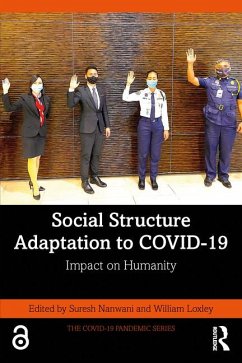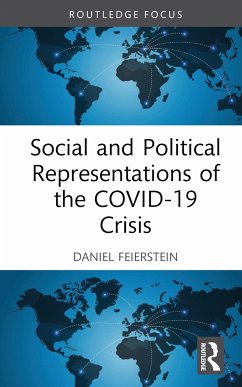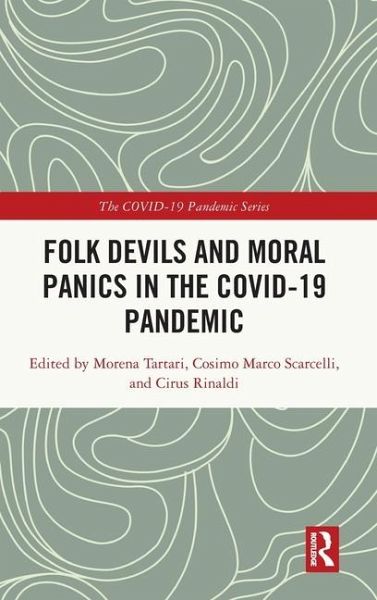
Folk Devils and Moral Panics in the COVID-19 Pandemic
Versandkostenfrei!
Versandfertig in 6-10 Tagen
154,99 €
inkl. MwSt.
Weitere Ausgaben:

PAYBACK Punkte
77 °P sammeln!
Folk Devils and Moral Panics in the COVID-19 Pandemic analyses the phenomena of moral panics surrounding so-called folk devils in the context of the COVID-19 pandemic.In this volume, internationally recognised moral panic scholars from disciplines including sociology, media studies, criminology, and cultural studies examine case studies of moral panics related to the COVID-19 pandemic. These analyses consider the different social, political, economic, organisational, and cultural contexts within which such moral panics emerged and assess how the concept of moral panic can be deployed to offer ...
Folk Devils and Moral Panics in the COVID-19 Pandemic analyses the phenomena of moral panics surrounding so-called folk devils in the context of the COVID-19 pandemic.
In this volume, internationally recognised moral panic scholars from disciplines including sociology, media studies, criminology, and cultural studies examine case studies of moral panics related to the COVID-19 pandemic. These analyses consider the different social, political, economic, organisational, and cultural contexts within which such moral panics emerged and assess how the concept of moral panic can be deployed to offer novel insights into sociocultural responses to the outbreak. By utilising both classical approaches to moral panic analysis and more recent trends, chapters discuss the utility of the concept of moral panic that is, for the first time, applied to a global-scale event like the COVID-19 pandemic.
This volume will be of interest to students and scholars in the social scienceswith an interest in moral panics, responses to the COVID-19 pandemic, and the media and popular culture.
The Open Access version of this book, available at http://www.taylorfrancis.com, has been made available under a Creative Commons Attribution-Non Commercial-No Derivatives (CC-BY-NC-ND) 4.0 license.
In this volume, internationally recognised moral panic scholars from disciplines including sociology, media studies, criminology, and cultural studies examine case studies of moral panics related to the COVID-19 pandemic. These analyses consider the different social, political, economic, organisational, and cultural contexts within which such moral panics emerged and assess how the concept of moral panic can be deployed to offer novel insights into sociocultural responses to the outbreak. By utilising both classical approaches to moral panic analysis and more recent trends, chapters discuss the utility of the concept of moral panic that is, for the first time, applied to a global-scale event like the COVID-19 pandemic.
This volume will be of interest to students and scholars in the social scienceswith an interest in moral panics, responses to the COVID-19 pandemic, and the media and popular culture.
The Open Access version of this book, available at http://www.taylorfrancis.com, has been made available under a Creative Commons Attribution-Non Commercial-No Derivatives (CC-BY-NC-ND) 4.0 license.





